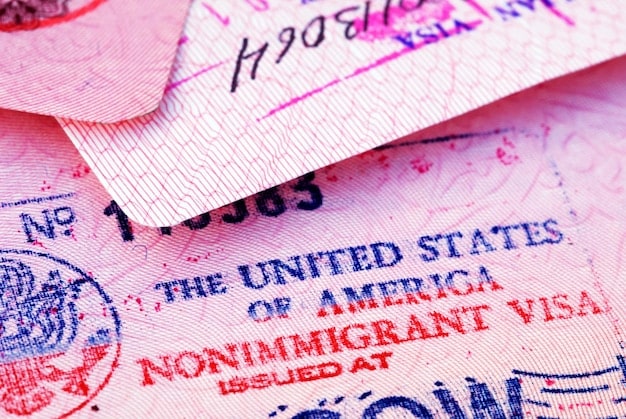US Tax Law for Digital Nomads in 2025: FEIE Exclusion Guide

Anúncios
Understanding the updated US tax law is crucial for digital nomads in 2025, especially when claiming the Foreign Earned Income Exclusion (FEIE) to minimize their US tax obligations.
Navigating US tax laws as a digital nomad can be complex, especially with ever-changing regulations. Understanding how the updated US Tax Law affects digital nomads in 2025 when claiming the Foreign Earned Income Exclusion is essential for minimizing your tax burden.
Anúncios
Understanding the Foreign Earned Income Exclusion (FEIE)
The Foreign Earned Income Exclusion (FEIE) is a significant benefit available to US citizens and resident aliens who live and work abroad. It allows eligible individuals to exclude a certain amount of their foreign-earned income from US taxes.
What is Foreign Earned Income?
Foreign earned income includes wages, salaries, and self-employment income earned while living in a foreign country. It does not include passive income such as dividends, interest, or capital gains.
Anúncios
Who is Eligible for the FEIE?
To qualify for the FEIE, you must meet the following requirements:
- You must have a tax home in a foreign country.
- You must meet either the physical presence test or the bona fide residence test.

The FEIE helps digital nomads significantly reduce their tax obligations by excluding a substantial portion of their income from US taxation.
Key Updates to US Tax Law Affecting Digital Nomads in 2025
Several updates to US tax law could impact digital nomads in 2025. These changes may affect eligibility for the FEIE and the way foreign income is reported.
Impact of Tax Cuts and Jobs Act (TCJA)
While the TCJA brought significant changes, many provisions are set to expire. Knowing which provisions remain in effect is crucial for tax planning.
Changes to Tax Brackets and Rates
Tax brackets and rates are subject to annual adjustments for inflation, which can affect your overall tax liability. Digital nomads should stay updated on these changes.
- Review the latest IRS publications regularly.
- Consult with a tax professional specializing in expatriate taxes.
- Use tax planning software to estimate your tax liability.
Staying informed about these updates is essential for digital nomads to ensure compliance and optimize their tax strategy.
Meeting the Physical Presence Test
One of the primary ways to qualify for the FEIE is by meeting the physical presence test. This requires being physically present in a foreign country or countries for at least 330 full days during any period of 12 consecutive months.
Calculating the 330 Days
The 330 days do not have to be consecutive, but you must be physically outside the US for that many days within a 12-month period.
What Counts as a Day Outside the US?
Any day you spend entirely outside the US counts toward the 330-day requirement. This includes travel days.

Careful planning and documentation are crucial for digital nomads to meet the physical presence test and qualify for the FEIE.
Establishing a Tax Home for FEIE Eligibility
Establishing a tax home in a foreign country is a crucial requirement for claiming the Foreign Earned Income Exclusion. Your tax home is generally defined as your regular or principal place of business or, if you have no regular or principal place of business, your regular place of abode.
Defining “Tax Home”
Your tax home is not necessarily where you reside but rather where your primary business activities are conducted. It must be in a foreign country for FEIE eligibility.
Maintaining Ties to a Foreign Country
Establishing strong ties to a foreign country, such as renting property, having local bank accounts, and participating in local activities, can help solidify your tax home claim.
Establishing and maintaining a valid tax home is essential for digital nomads to substantiate their FEIE claims with the IRS.
Claiming the Foreign Earned Income Exclusion: Step-by-Step
Claiming the Foreign Earned Income Exclusion involves specific forms and procedures with the IRS. Understanding this process ensures compliance and maximizes tax benefits.
Form 2555: Foreign Earned Income
You must file Form 2555, “Foreign Earned Income,” with your US tax return to claim the FEIE. This form requires detailed information about your foreign residency and income.
Calculating the Exclusion Amount
The exclusion amount is adjusted annually for inflation. For 2025, it’s essential to check the IRS guidelines for the exact amount you can exclude.
- Gather all necessary documents, including proof of foreign residency.
- Complete Form 2555 accurately and attach it to your Form 1040.
- Retain copies of all documents for your records.
Accurate and timely filing is crucial for successful FEIE claims and avoiding potential IRS issues.
Common Mistakes to Avoid When Claiming FEIE
Digital nomads often make common mistakes when claiming the Foreign Earned Income Exclusion. Avoiding these pitfalls can help ensure compliance and prevent potential audits.
Incorrectly Calculating Qualifying Days
Many digital nomads miscalculate the 330-day physical presence test, leading to invalid claims. Accurate tracking is essential.
Failing to Establish a Valid Tax Home
Without a valid tax home, you may not be eligible for the FEIE. Make sure to establish and maintain ties to a foreign country.
- Keep detailed records of your travels and time spent in foreign countries.
- Consult with a qualified tax professional for personalized advice.
- Double-check all calculations and documentation before filing.
By avoiding these common errors, digital nomads can improve their chances of a successful FEIE claim and minimize tax-related risks.
Tax Planning Strategies for Digital Nomads in 2025
Effective tax planning is essential for digital nomads to optimize their tax situation. These strategies can help reduce tax liabilities and ensure compliance with US tax laws.
Maximize Deductions and Credits
Take advantage of all available deductions and credits, such as those for business expenses, education, and retirement contributions. This can significantly reduce your taxable income.
Consider Foreign Tax Credits
If you pay taxes in a foreign country, you may be eligible for foreign tax credits. This credit can offset your US tax liability and prevent double taxation.
“`html
| Key Point | Brief Description |
|---|---|
| 🌍 FEIE Eligibility | Understand requirements like the physical presence or bona fide residence test. |
| 🗓️ Physical Presence | Spend at least 330 full days outside the US in a 12-month period. |
| 🏠 Tax Home | Establish a tax home in a foreign country, not necessarily your residence. |
| 📝 Form 2555 | File Form 2555 with your US tax return to claim the FEIE. |
“`html
Frequently Asked Questions
▼
The FEIE allows eligible U.S. citizens and resident aliens who live and work abroad to exclude a certain amount of their foreign-earned income from U.S. taxes, reducing their overall tax liability.
▼
To qualify, you must be physically present in a foreign country or countries for at least 330 full days during any period of 12 consecutive months, demonstrating substantial presence abroad.
▼
A tax home is your regular or principal place of business, or if you have no regular business, your regular place of abode. It must be in a foreign country to claim the FEIE.
▼
You must file Form 2555, “Foreign Earned Income,” with your U.S. tax return to claim the FEIE. This form requires details about your foreign residency and income information.
▼
Common mistakes include miscalculating qualifying days, failing to establish a valid tax home, and not keeping accurate records. Consulting with a tax professional can help avoid these issues.
“`html
Conclusion
Understanding and adapting to the updated US tax law is crucial for digital nomads aiming to leverage the Foreign Earned Income Exclusion in 2025. By staying informed, planning carefully, and seeking professional advice, digital nomads can navigate these complexities and optimize their tax situation, ensuring compliance and financial well-being. This knowledge is key to enjoying the freedom of the digital nomad lifestyle while managing tax responsibilities effectively.
“`html





